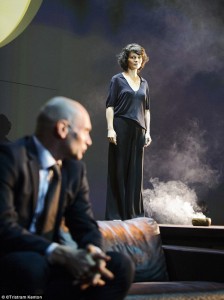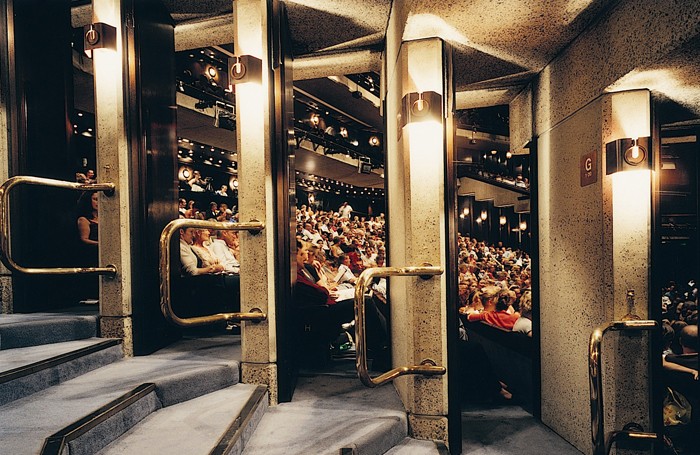When the Barbican Centre first opened in 1982, one of its first resident companies was the Royal Shakespeare Company, who gave up their beloved West End addresses at the Aldwych and Donmar Warehouse to move there. The Barbican’s two theatre spaces that replaced them — the mainhouse Barbican Theatre and Pit respectively — were built specifically to and for the RSC’s specifications.
So it was hugely surprising, not to say foolhardy, when then artistic director Adrian Noble suddenly decided to withdraw the company from the building entirely in 2002, and become a company that peripatetically roamed all over the capital, hiring theatres as it needed them from the Noel Coward and Novello to the Roundhouse. It did particularly impressive work in reconfiguring the Roundhouse as a bespoke space for itself, but the company’s lack of a permanent presence in London damaged it greatly.
In 2013, incoming artistic director Gregory Doran brought the company back to the Barbican for the first time, to host the London sell-out transfer David Tennant’s Richard II; last year, he followed it by moving his own productions of Henry IV Parts I and II there, too. Now it has been announced that the RSC is to make the Barbican its London base for the next five years.
Which brings it full circle. But the Barbican, far from going into artistic retreat after the RSC’s exit, embraced the challenge and has instead set itself up as London’s foremost home of international collaborations and co-productions, and is one of the most essential theatrical addresses in London these days, along with the Young Vic. And now, we’re going to get the best of both worlds, I hope, with the RSC appearing there alongside such international visitors as Robert Lepage, Complicite and Ivo van Hove making work for it.

Last night I belatedly caught van Hove’s mesmerisingly intense production of Antigone there. It’s a stately but quietly enthralling modern take on the Greek tragedy that at times plays with the brooding, maxed-out intensity of a Sam Shepard play. The only pity is that Juliette Binoche is so shrill. The billowing smock she wore was admittedly stylish, but I kept thinking: bring back Fiona Shaw, all is forgiven!

